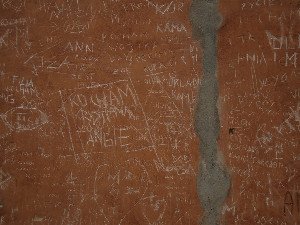Mohamad Nuryansah, Muhammad Izzul Haq
STRATEGI PENCEGAHAN HOAKS DALAM PERSPEKTIF AL-QUR’AN DAN HADIS
Introduction
Strategi pencegahan hoaks dalam perspektif al-qur’an dan hadis. Pelajari strategi pencegahan hoaks dari perspektif Al-Qur'an dan Hadis. Temukan solusi Islam untuk mengatasi penyebaran berita bohong di media sosial dan menjaga kerukunan.
Abstract
Seiring meningkatnya penggunaan media sosial oleh masyarakat menyebabkan mudahnya masyarakat menerima informasi atau berita. Namun sayangnya, kemudahan akses informasi tersebut sering dimanfaatkan oknum-oknum yang tidak bertanggungjawab untuk menyebarkan berita bohong (hoaks) di masyarakat luas. Berita bohong atau hoaks dapat menimbulkan berbagai perpecahan dan konflik antar individu dan kelompok bahkan dapat memecah belah bangsa. Supaya kejadian tersebut tidak terjadi, maka penelitian ini bertujuan mencari solusi yang bersumber dari al-Qur’an dan hadis tentang bagaimana caranya mencegah penyebaran hoaks di masyarakat. Metode yang digunakan dalam penelitian ini adalah bersifat kualitatif dengan jenis penelitian kepustakaan (library research), pendekatannya menggunakan deskriptif analisis. Hasil penelitian menunjukkan bahwa al-Qur’an dan hadis sebagai landasan umat Islam telah merespon dan memberikan solusi terkait pencegahan penyebaran hoaks. Strategi yang ditawarkan oleh al-Qur’an dan hadis ialah 1) mengedepankan sikap tabayyun, 2) tidak menyebarkan berita kecuali sudah membaca dan paham dengan isinya, 3) tidak mengikuti terhadap sesuatu yang belum jelas kebenarannya, 4) selalu sadar akan pengawasan dari Allah Swt., 5) senantiasa berkata baik dengan sesama manusia, dan 6) saling mengingatkan satu sama lain.
Review
This paper, "STRATEGI PENCEGAHAN HOAKS DALAM PERSPEKTIF AL-QUR’AN DAN HADIS," addresses a highly relevant and pressing issue: the proliferation of hoaxes in the digital age. The abstract clearly identifies the societal harm caused by misinformation and proposes to seek solutions rooted in Islamic sacred texts. Utilizing a qualitative library research method with a descriptive-analytical approach, the study aims to extract strategies from the Qur’an and Hadith for preventing the spread of hoaxes. This objective is timely, considering the increased reliance on social media and the subsequent vulnerability of communities to false information, making the exploration of ethical frameworks particularly valuable. The strength of this research lies in its unique proposition of drawing ethical and practical guidance from foundational Islamic scriptures. The identified strategies—including the emphasis on *tabayyun* (verification), refraining from spreading unverified news, not following the unclear, constant awareness of divine oversight, good speech, and mutual reminding—offer a comprehensive and spiritually grounded framework. These principles are not merely abstract but are presented as actionable steps, providing a distinct contribution by connecting contemporary societal challenges with a rich religious tradition. For Muslim communities, this approach offers a culturally and spiritually resonant set of tools to navigate the complex information landscape. While the paper successfully outlines relevant strategies, a deeper analytical discussion on their practical implementation in the highly dynamic and often overwhelming digital sphere would significantly enhance its impact. The abstract lists the strategies, but the "descriptive analysis" mentioned should ideally delve into *how* these principles can effectively counter the rapid dissemination and sophisticated nature of modern hoaxes. For instance, exploring the challenges of applying *tabayyun* in real-time or fostering "awareness of Allah Swt." amidst information overload could provide a richer understanding. Future iterations or a more extensive discussion within the paper could consider the socio-psychological barriers to adopting these strategies and offer practical frameworks for their integration into digital literacy initiatives. Despite this, the paper establishes a valuable foundation for further research into the intersection of religious ethics and information integrity.
Full Text
You need to be logged in to view the full text and Download file of this article - STRATEGI PENCEGAHAN HOAKS DALAM PERSPEKTIF AL-QUR’AN DAN HADIS from Al-Bayan: Journal of Hadith Studies .
Login to View Full Text And DownloadComments
You need to be logged in to post a comment.
Top Blogs by Rating
The Collective Gasp: Why Live...
By Sciaria
Beyond the Chart: The Nurse's...
By Sciaria
Identical Twins Aren't Identic...
By Sciaria
Favorite Blog
Whispers from the Walls: Unloc...
By Sciaria
Unraveling Heredity: Beyond th...
By Sciaria
The Evolution of Knowledge in...
By Sciaria
Related Research
History of education in cambodia: a review of literature from past to present
Project-based learning pada pendidikan dasar: kajian teoretis terhadap hasil belajar dan kolaborasi siswa
Pengaruh green awareness terhadap minat beli produk kosmetik hijau pada konsumen generasi z
Share
Notice Board
- TEOREETTISIA JA TOIMINNALLISIA NäKYMIä TOIVOKESKEISYYDESTä URAOHJAUKSEEN
- PROCESSING VILLAGE SUPERIOR COMMODITIES INTO COMPETITIVE MULTISRATA PRODUCTS IN WEST HALMAHERA DISTRICT
- ANALYSIS OF THE RELATIONSHIP BETWEEN MOTIVATION AND LEARNING OUTCOMES OF CHINESE LANGUAGE EDUCATION STUDENTS CLASS OF 2022 SEMARANG STATE UNIVERSITY IN THE CHUJI HANYU XIEZUO XIA COURSE





